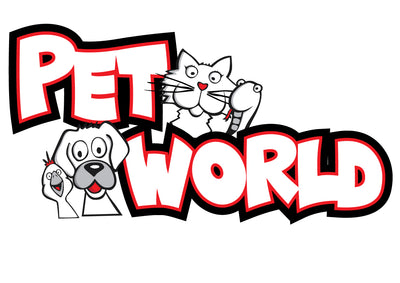Introduction
There has always been the fish food flakes vs pellets debate. People always wonder which one is better, fish flakes or pellets. Here is our opinion. They are not actually as different as you might think, but it is still worth talking about.
Fish Flakes: Summary, Pros & Cons
Fish flakes are a staple, probably the most common fish food available. They are nothing more than a mix of various ingredients, usually catered to a specific type of fish. You can find fish flakes that are mainly made of meat protein, mainly of fruits and veggies, algae, and others with a mix of all of the above.
Fish flakes are available for virtually any type, species, and breed of fish out there. They are inexpensive and can be bought in bulk. Flakes usually disperse themselves and float in the water - they don’t sink.
Flake Pros
- Fish flakes can be bought virtually anywhere that carries pet and aquarium supplies.
- Fish flakes are very versatile in the sense that you can find ones for any type of fish out there.
- High end fish flakes can be very good for fish and come loaded with a plethora of nutrients to assist in healthy growth, energy, coloration, a healthy immune system, and more.
- Fish flakes are great if you have lots of fish that need to be fed and are sure that the flakes will be eaten. They float around in the water, making them easy for fish to pick off before they eventually make their way to the bottom of the tank.
- Fish flakes are small and are therefore perfect for small fish with small mouths.
Flake Cons
- Fish flakes tend to dissolve in the water pretty fast, and what is left uneaten turns into mush and eventually dissolves in the water. This can create water contamination and water chemistry issues.
- Because flakes tend to float, they are usually not the best option for bottom feeders.
- Fish flakes do not have a particularly long shelf life. Once the package is opened up, they usually between two weeks and a month at the most.
- Due to the size and shape of fish flake food, fish can often gulp down a lot of air when eating them, which then causes digestion and buoyancy issues for the fish.
- Fish flakes are usually too small to be used to feed larger fish.
- It can be hard to measure how much food you are giving to your fish when feeding them fish flakes.
Fish Pellets: Summary, Pros & Cons
All in all, pellets really are not all that different from fish flakes. You can find pellets for saltwater fish, freshwater fish, tropical fish, coldwater fish, meat-eaters, omnivores, and herbivores too! Pellets are usually also packed with nutritional goodness to help fish be happy and healthy. Of course, pellets are larger than fish flakes and heavier, thus they are usually made to sink (but you can buy floating fish pellet foods). Pellets are good to go with if you have a few fish that like to eat a lot of food, and if you want to ensure that the food has a long shelf life before expiry.
Pellet Pros
- Due to the size and consistency of pellet food, fish usually swallow a lot less air when eating the pellets.
- Fish pellets can be bought either as pellets that float, or pellets that sink. It’s convenient because floating pellets feed top and middle column eaters, and sinking pellets feed bottom dwellers.
- Due to their size and consistency, pellets may have more nutritional content than fish flakes. High quality pellets will usually contain more nutritional value than high quality flakes.
- Fish pellets make it easy to judge and measure exactly how much food you are feeding your fish, which helps to avoid both underfeeding and overfeeding.
- Due to the way in which these pellets are made, they tend to have quite a long shelf life, which anybody can recognize as a bonus.
- There are some good automatic fish feeders for pellets.
Pellet Cons
- Fish pellets, if left uneaten, will usually always sink to the bottom of the tank and start to dissolve rather quickly. This can be an issue as pellets are known for making a bit of a mess. This can also adversely affect water quality and require you to clean the tank more often.
- On occasion, fish have been known to eat the substrate by mistake when foraging for sunken pellets, which can cause health issues.
Final Thoughts
So generally speaking, the differences between flakes and pellets is very minimal. Personally, we might recommend sticking with pellets, as they are easier to judge in terms of how much you are feeding your fish, they have a longer shelf life, and you can find ones that both sink or float. They tend to be a bit more versatile than fish flakes in this way, but flakes are still fine if you just have a couple of small fish that need regular feeding. When all is said and done, the most important thing here by far is that you get the right kind of food with the right nutritional content for your specific fish.

